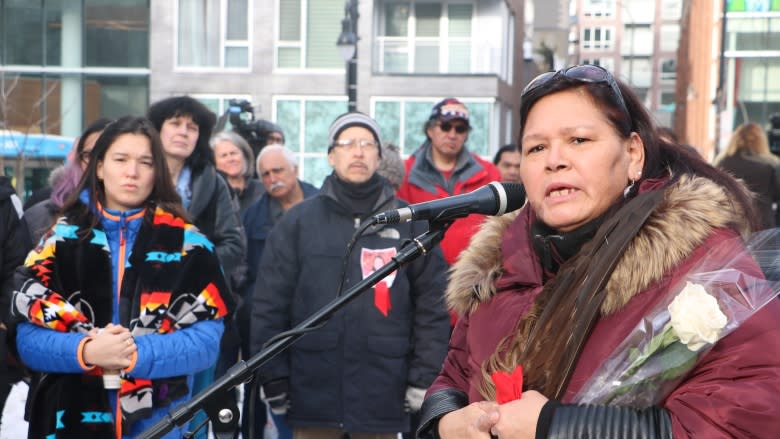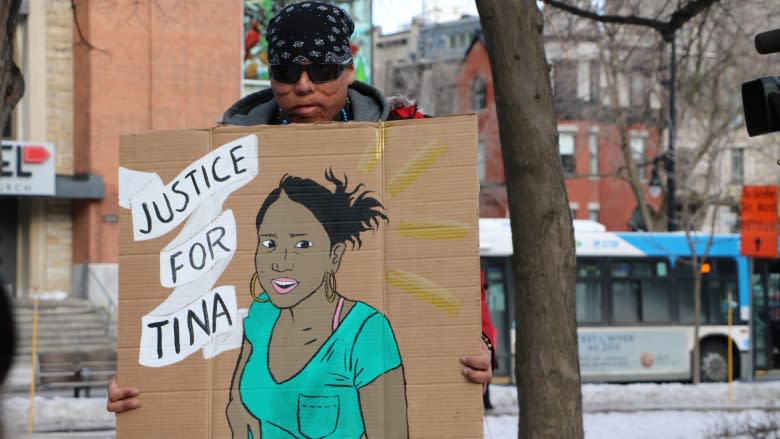'Our sisters are still not protected': Montrealers call for justice for Tina Fontaine
The failure to hold anyone accountable for the 2014 death of an Indigenous teenager brought several hundred people to Montreal's Cabot Square on Saturday, where they demanded more concrete action on reconciliation and urgent reforms to Canada's justice system.
"I have rage at the system that exerts discrimination," Viviane Michel, who heads the advocacy group Quebec Native Women, told the crowd.
The vigil was held to honour the memory of Tina Fontaine, a 15-year-old girl whose body was found wrapped in a duvet cover and weighted down by rocks in Winnipeg's Red River three years ago.
Earlier this week, a jury acquitted a 56-year-old man of second-degree murder charges in her death. The verdict came down as Indigenous leaders and advocates were still reeling from the outcome of Gerald Stanley's murder trial.
Stanley was found not guilty of shooting Colten Boushie, a 22-year-old member of the Cree Red Pheasant First Nation in Saskatchewan earlier this month.
"Two huge disappointments in such a small amount of time," said Michel.
The two trials have prompted renewed calls to overhaul the justice and child welfare systems in Canada to ensure they treat Indigenous people with more equality.
Similar concerns have been voiced at Quebec's commission into Indigenous relations, which held hearings in Montreal earlier this month.
"We have to make change. What we are doing is not enough, as evidenced this past week," said Ellen Gabriel, a Mohawk activist.
About 400 people attended the Saturday afternoon vigil in Cabot Square, many holding signs with slogans such as "Justice brings healing" and "Do right."
'There are Tinas everywhere'
Nakuset, the executive director of the Native Women's Shelter in Montreal, told the crowd that the teen's death shouldn't be in vain.
"There are Tinas everywhere and we have to do better," she said.
After Fontaine's body was pulled from the river, her death shed national spotlight on the deaths and disappearances of missing and murdered Indigenous women and girls.
The case prompted calls for a Canada-wide inquiry and spurred demands for federal action.
The federal government launched an independent national inquiry into the issue in September 2016.
But some say that little has been done to protect them.
Olepika Takpanie, who lives in Montreal and is from Iqaluit, said that the lack of answers in Fontaine's death shows that the lives and wellbeing of Indigenous women and girls are less important than their Canadian counterparts.
"It's unacceptable to know that young Indigenous women in Canada are not protected by the justice system."
While it has been nearly four years since Fontaine's death, Michel said not much progress has been made to safeguard women and girls across the country from violence.
"We need equal justice too," said Michel. "I have a dream that we can have the equal protection that you all have."




